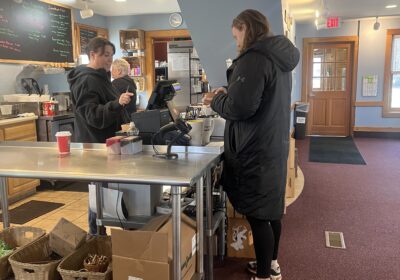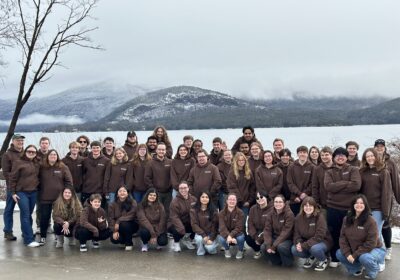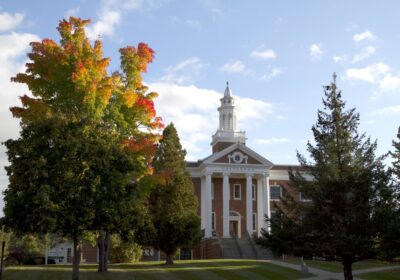‘Green Book’ screening offers lesson on race
Members of the Castleton University community gathered before break to discuss the struggles of the African American experience in conjunction with the film, “Green Book.”
Raphael Okutoro, assistant director of Admissions, noted how the film reverses the stereotypical roles of white and black Americans in that time period, juxtaposing the wealthy and cultured musician, Don Shirley with his poor and crass driver, Tony Vallelonga.
He said that they respectively learn about the extension of privilege to people of color and how being exposed to certain stereotypical aspects does not provide a good assessment of African American culture.
“In that context, you can see how it wasn’t so much about race as it was about identity,” Okutoro said.
The film, starring Mahershala Ali and Viggo Mortenson, tells the true story of Shirley and Vallelonga and their developing friendship as they embarked on a concert tour in the Deep South during the Jim Crow Era. The title comes from a guidebook by Victor Hugo Green that helped African-American motorists find hotels, restaurants and other safe havens as they traveled at the risk of persecution.
The university hosted screenings of the movie on two nights before winter break in the Jeffords Hall Auditorium as a part of the series, “Race Matters: A Castleton Dialogue.”
Athletic Director Deanna Tyson, who attended the first screening, said everyone should see the film because it opens peoples’ eyes on how racism negatively affects this country. She said it provides an opportunity to educate her family on something that they are not often exposed to from living in Vermont.
“Anytime we have Black History Month, if there was something that I can bring them to, I would definitely bring them,” Tyson said. Sociology Professor Linda Olson said that in spite of the progress the United States has made in terms of equality, the legacy of structural racism still lives on. She said that even though the country has abolished Jim Crow Era regulations, segregation has gotten worse in some parts of it, and African-Americans are still at a disadvantage in terms of economic and educational opportunities.
“It’s not mandated by law anymore, but that doesn’t mean we don’t see the impact of it to this day,” Olson said.
Okutoro added that as someone of African heritage, the legacy of the Jim Crow Era follows him even in Vermont. Attributing it to the lack of diversity in the state, he said he has encountered instances of ignorance and racial profiling in the Rutland area; despite its history of abolitionism and progressivism.
“There are underlying issues that people don’t see that are there,” Okutoro said.






